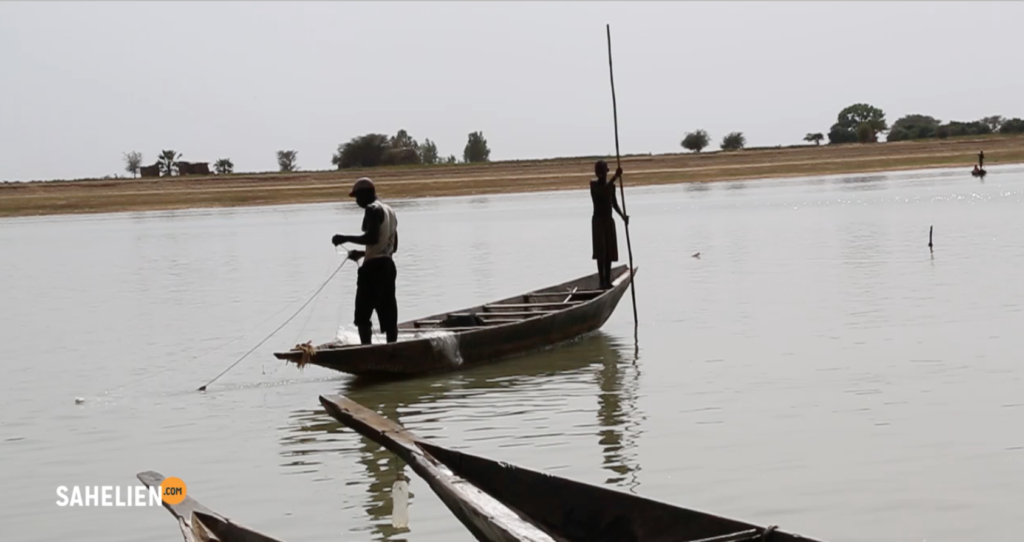Mali’s fifth administrative region, Mopti, has been experiencing difficulties over the last few years due to insecurity in the region. The economy of the Malian Venice relies mainly on fishing, tourism, livestock and agriculture. But today, activities are slow.
“Before, after school, young people could devote themselves to fishing, breeding or working as tourist guides. Now with the crisis and the cessation of tourism, young people have nothing more to do. And it is a problem that can create even more serious ones”, says Clément Dakouo, Coordinator of the Franco-Malian Alliance in Mopti.
Sidi Dicko is a tourist guide that we met in one of the canoes moored along the banks of the Niger River in Mopti. Like him, many young people lived mainly on tourism before the multidimensional and multifactorial crisis going on in the locality.
“My job was to show the region in a canoe to the whites. Since 2012, there are no activities. We have a lot of colleagues who are selling livestock today and others have gone to the gold panning sites. We scattered a little. Those who went to the gold panning sites all had difficulties. Some of them even went crazy. Today we are talking about great banditry in our country, it is only poverty that causes people to do this”, Sidi said.
Other difficulties faced by farmers, herders and fishermen are the environmental degradation and the silting up of the Niger River. This nurturing source, place of navigation, commerce and main supplier of irrigation water, is seriously threatened. “I think that in 10 years, if we are not careful about it, one can cross this river by car”, worries Issa Kansaye, mayor of the urban commune of Mopti.
According to the municipality, measures are underway to deal with the threat: “We are, however, making a lot of progress in banning household trash on the banks of the Niger River. We have a sanitation service that also deals with the monitoring from the bank to the dock, households that are damaging the environment”, says the mayor.
The collapse of local traditional industries is not without consequences for the juvenile population. Some young people join the ranks of terrorist groups in the region, others try the adventure of immigration.
“Insecurity leads to poverty, poverty leads to vulnerability and vulnerability leads to all evils. Either they integrate armed groups or they emigrate or they move to urban areas”, says Abba Kassambara, president of a youth association.
In Barcondaga, a village south of Mopti, mainly composed of Bozos, whose main activity is fishing, fish is becoming rare and the village is emptying little by little of its inhabitants.
For the village chief, Sekou Salamata, “even the heads of families leave to join their children abroad and if everything goes as planned, they settle down there. I swear to you there are some of these Bozo villages today in Konna, when you go there, all the families are leaving. Believe me, they will not even come back again”.
According to columnist Alexis Kalambry, there is missing a real policy of resource preservation. “Less than 10 years ago, Mali was exporting nearly 4 billion Francs CFA a year, just fish to Ghana or countries like Burkina Faso. It was a real industry because the fish was smoked, dried and it made a lot of people work. There are now problems of scarcity of fish resources in the river, problems of silting and the environment. Meanwhile, the State has done nothing even if in recent times, fish farming is taking over”, he analyzes. According to him, leaving is not a luxury but a matter of survival, even if young people are aware of the danger.
The people of Mopti that we met believe that the security of the region is necessary for the revival of economic activities.
Sory Kondo, special reporter
